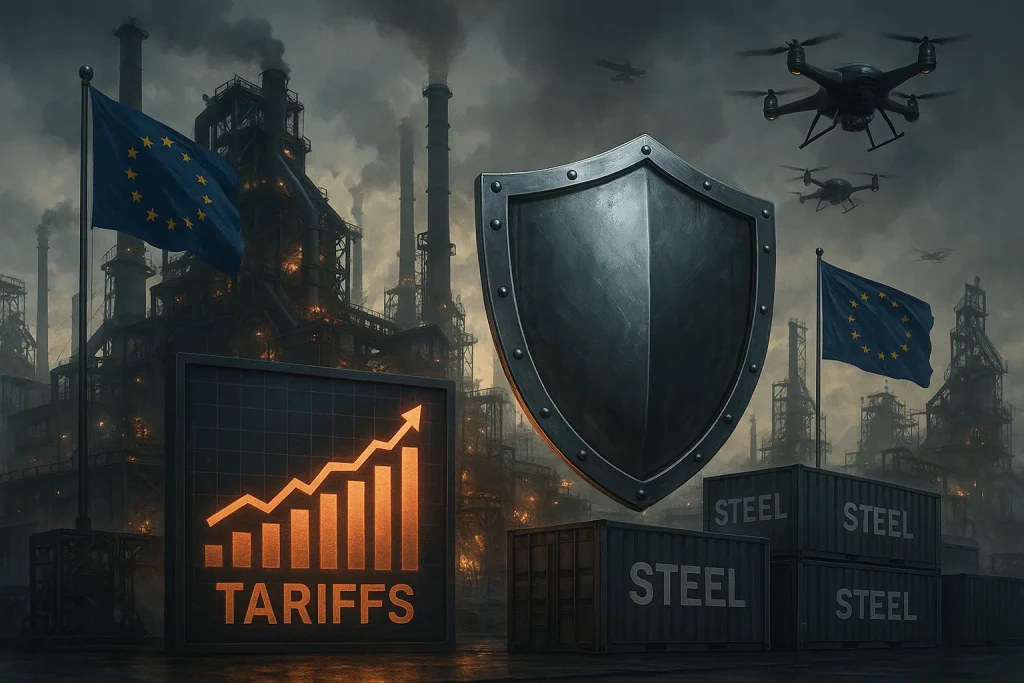The European Union is planning to significantly raise tariffs on steel imports, proposing to hike the rate to 50%, a Bloomberg report said on Thursday.
The proposed moves aligns the EU’s stance with the United States, which has already imposed heavy tariffs to counter overcapacity and dumping of cheap steel, particularly from China.
Currently, the regional bloc operates under a temporary safeguard mechanism that imposes a 25% duty on most steel imports; once established quotas are exceeded, the proposed tariffs double that to 50%.
Forging Europe’s steel shield
Apart from the doubling of steel tariffs, the European Commission is also seeking authority to impose country-specific quotas to better control import levels from particular nations.
It means the nations dumping cheap steel in European nations can even face specific penalties in terms of higher tariffs, a move that seems to be intended to prevent trade diversion and circumvention tactics.
This move comes amid mounting pressure on the EU’s struggling steel industry, which has been grappling with an influx of cheap steel primarily from Asian countries, especially China, the world’s largest steel producer.
The overcapacity problem has depressed steel prices and severely impacted European producers’ profitability and investment in modernization and decarbonization efforts.
The European nations are also connecting it with regional security, as recently, Poland’s Prime Minister Donald Tusk highlighted the strategic importance of steel.
“Security means armaments and armaments mean steel,” Tusk said at a recent European summit, and emphasized on the need to protect European steel manufacturers as a cornerstone of broader defense and economic security.
Europe’s industrial shield takes shape
The proposed hike in steel tariffs is part of a broader strategy of the European Union as it looks to safeguard the key sectors while responding to international trade dynamics.
This initiative also reflects ongoing tensions between maintaining open global trade and addressing unfair trade practices that threaten regional industries.
The industries in Europe have welcomed the move and called it an essential step to protect quality jobs and promote a sustainable steel industry.
However, they insist further measures will be necessary to fully address the structural challenges posed by global steel overcapacity.
The proposal is expected to be formally unveiled by the European Commission next week, signaling a shift towards a more protective trade framework for the European steel sector.
Analysts expect this could escalate trade tensions with some steel-exporting countries but deem it necessary for the EU to remain competitive and secure its industrial base amid geopolitical uncertainties and evolving market conditions.
The developments come on the heels of a defence debate in Europe, where nations are concerned about recent drone incursions and point to the intertwined nature of industrial policy and security.
The post European Union plans 50% steel tariffs amid global overcapacity concerns appeared first on Invezz



